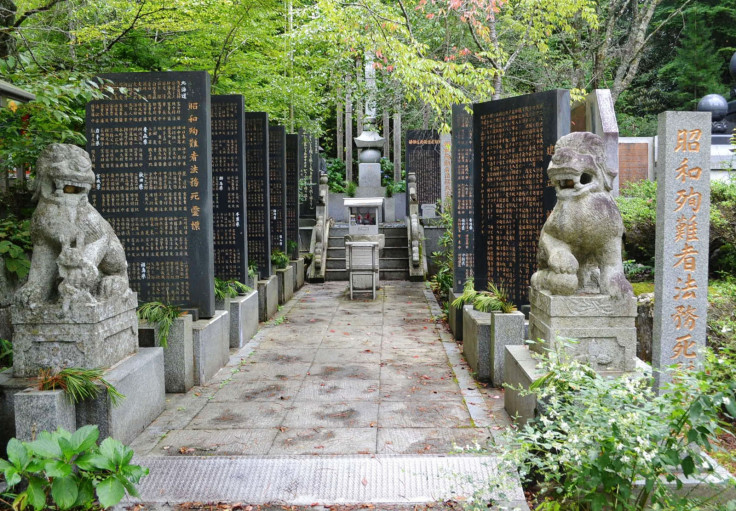Japan PM Pays Tribute to WWII War Criminals

Japanese PM Shinzo Abe has paid tribute to a ceremony honouring "martyrs" who were convicted as war criminals after World War II.
In his message, sent in April, Abe offered his "sincere condolences" to more than 1,000 "Showa martyrs" housed in a monument in the Buddhist Koyasan Okuno-in temple in Wakayama, western Japan.
The term Showa refers to the late Emperor Hirohito. The "martyrs", according to Abe, "gave their lives for the sake of today's peace and prosperity, becoming the foundation of the fatherland".
However the monument also praises the 14 "Class A" war criminals who were military leaders, who were tried and convicted of war crimes by an Allied tribunal after World War II.
The website of the Wakayama monument says that the Allied trials amounted to "victor's revenge". The 14 war criminals are also commemorated in the controversial Yasukuni Shrine, seen by many critics as a symbol of Japan's past militarism.
Official visits by Japanese politicians to the Shrine typically cause an angry backlash from China and South Korea. Last August, China summoned Japan's ambassador over a visit by three cabinet ministers and a dozen or so politicians to Yasukuni. Earlier this month, Abe sent a ritual offering but stopped short from the shrine in an effort to avoid a diplomatic crisis.
The chief cabinet secretary of the ruling Liberal Democratic Party, Yoshihide Suga, remarked that Japan accepts the verdicts of the tribunal which convicted the wartime leaders in 1952.
"It is a fact that (the accused) were judged guilty of crimes against peace by the International Military Tribunal for the Far East," Suga said. "Under the San Francisco Peace Treaty, our country accepts those judgments."
© Copyright IBTimes 2024. All rights reserved.






